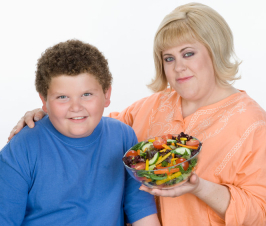Women who are pregnant or trying to conceive should be advised to avoid caffeine because the evidence suggests that maternal caffeine consumption is associated with negative pregnancy outcomes and that there is no safe level of consumption, finds an analysis of observational studies published in BMJ Evidence Based Medicine.
Caffeine is probably the most widely consumed psychoactive substance in history
Caffeine is probably the most widely consumed psychoactive substance in history, and many people, including pregnant women consume it on a daily basis.
Pregnant women have been advised that consuming a small amount of caffeine daily will not harm their baby. The UK NHS, the American College of Obstetricians and Gynecologists, the Dietary Guidelines for Americans and the European Food Safety Authority (EFSA) set this level at 200 mg caffeine, which approximates to roughly two cups of moderate-strength coffee per day.
This study undertook a review of current evidence on caffeine-related pregnancy outcomes
This study undertook a review of current evidence on caffeine-related pregnancy outcomes, to determine whether the recommended safe level of consumption for pregnant women is soundly based.
Through database searches, Professor Jack James, of Reykjavik University, Iceland, identified 1,261 English language peer-reviewed articles linking caffeine and caffeinated beverages to pregnancy outcomes.
These were whittled down to 48 original observational studies and meta-analyses published in the past two decades reporting results for one or more of six major negative pregnancy outcomes: miscarriage, stillbirth, low birth weight and/or small for gestational age, preterm birth, childhood acute leukemia, and childhood overweight and obesity.
A total of 42 separate findings were reported in 37 observational studies
A total of 42 separate findings were reported in 37 observational studies; of these 32 found that caffeine significantly increased risk of adverse pregnancy outcomes and 10 found no or inconclusive associations. Caffeine-related risk was reported with moderate to high levels of consistency for all pregnancy outcomes except preterm birth.
Eleven studies reported on the findings of 17 meta-analyses, and in 14 of these maternal caffeine consumption was associated with increased risk for four adverse outcomes: miscarriage, stillbirth, low birth weight and/or small for gestational age, and childhood acute leukemia. The three remaining meta-analyses did not find an association between maternal caffeine consumption and preterm birth.
No meta-analyses looked at the association between maternal caffeine consumption and childhood overweight and obesity, but four of five observational studies reported significant associations.
This is an observational study, so can’t establish causation
This is an observational study, so can’t establish causation, and the author points out that the results could be impacted by other confounding factors, such as recall of caffeine consumption, maternal cigarette smoking and most importantly pregnancy symptoms. Pregnancy symptoms such as nausea and vomiting in early pregnancy are predictive of a healthy pregnancy and women who experience them are likely to reduce their caffeine intake.
Dose-responsive nature of the associations between caffeine and adverse pregnancy outcomes
But he adds that the dose-responsive nature of the associations between caffeine and adverse pregnancy outcomes, and the fact some studies found no threshold below which negative outcomes were absent, supports likely causation rather than mere association.
Professor James concludes that there is “substantial cumulative evidence” of an association between maternal caffeine consumption and diverse negative pregnancy outcomes, specifically miscarriage, stillbirth, low birth weight and/or small for gestational age, childhood acute leukemia and childhood overweight and obesity, but not preterm birth.
As a result, he adds, current health recommendations concerning caffeine consumption during pregnancy are in need of “radical revision.”
“Specifically, the cumulative scientific evidence supports pregnant women and women contemplating pregnancy being advised to avoid caffeine,” he says.
1. Jack E. James. Maternal caffeine consumption and pregnancy outcomes: a narrative review with implications for advice to mothers and mothers-to-be. BMJ Evidence Based Medicine, 2020 DOI: 10.1136/bmjebm-2020-111432

Razi Berry is the founder and publisher of the journal Naturopathic Doctor News & Review, which has been in print since 2005, and the premier consumer-faced website of naturopathic medicine, NaturalPath. She is the host of The Love is Medicine Project docuseries, The Natural Cancer Prevention Summit, The Heart Revolution-Heal, Empower and Follow Your Heart, and the popular 10-week Sugar Free Summer program. From a near death experience as a young girl that healed her failing heart, to later overcoming infertility and chronic fatigue syndrome and fibromyalgia through naturopathic medicine, Razi has lived the mind/body healing paradigm. Her projects uniquely capture the tradition and philosophy of naturopathy: The healing power of nature, the vital life force in every living thing and the undeniable role that science and mind/body medicine have in creating health and overcoming dis-ease. You can follow Razi on social media: Facebook at Razi Berry, Instagram at Razi.Berry and join the Love is Medicine group to explore the convergence of love and health. Look for more, and listen to more Love is Medicine podcast episodes here.

















